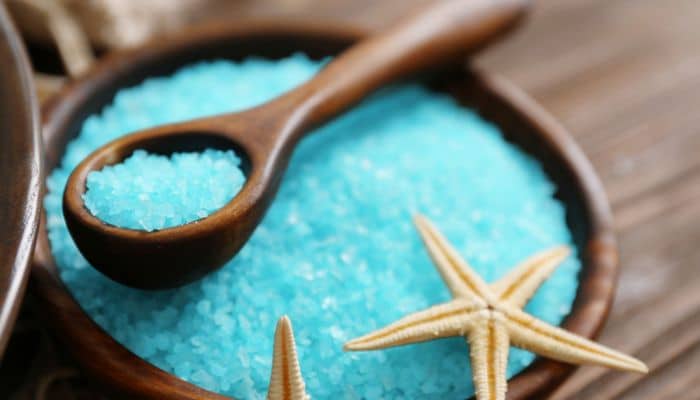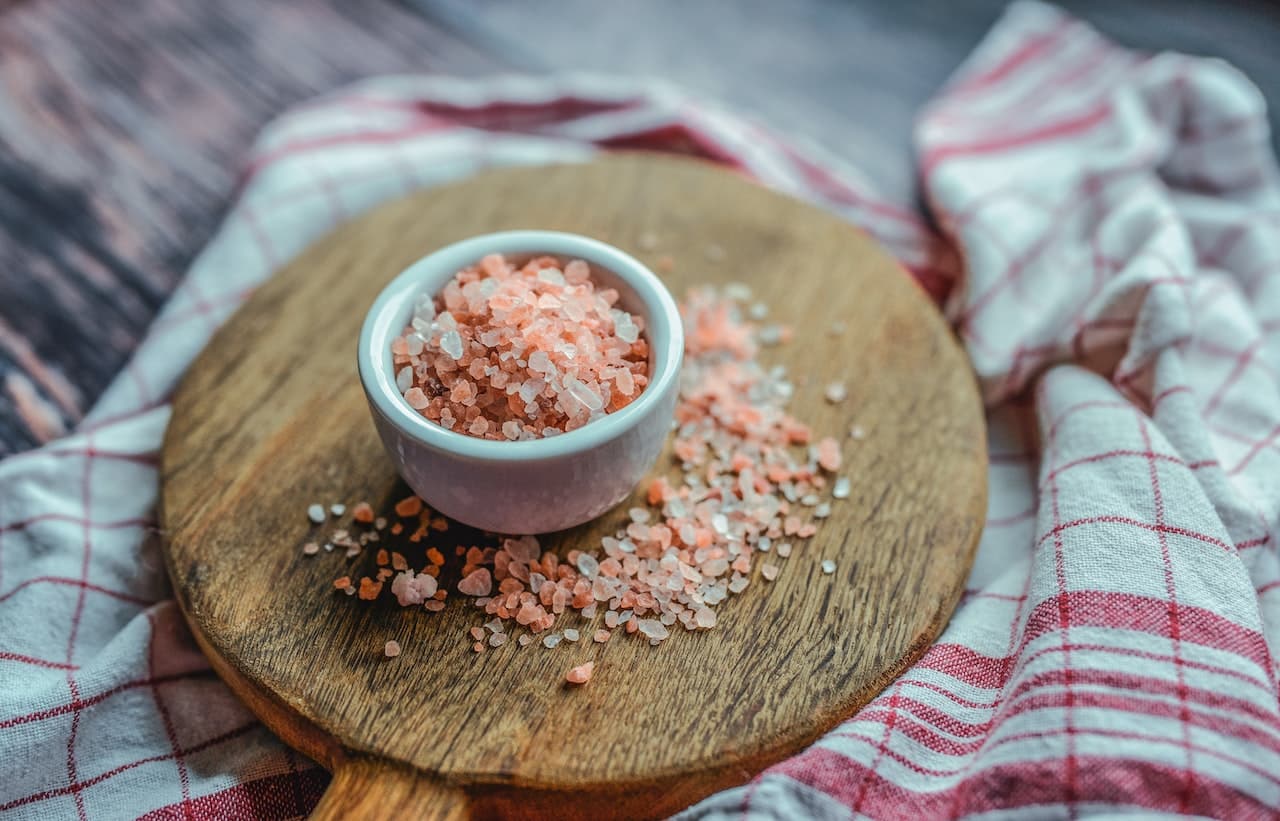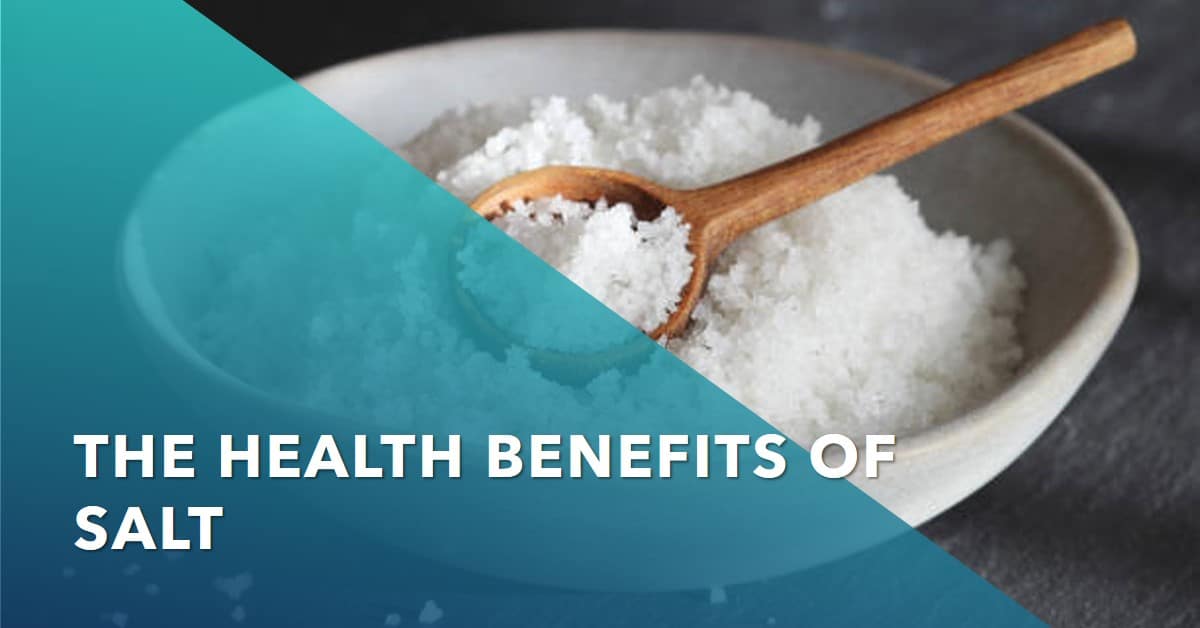Interstitial cystitis (IC) is a frustrating, sometimes embarrassing condition that can greatly interfere with your quality of life. Achieving a diagnosis alone can exasperate you — then there’s the long road to finding a treatment plan that works. When researching treatments, you might come across Epsom salt baths and wonder if they are good for IC.
It’s a great question, especially as soaring costs of living coupled with an expensive health care system prevent far too many from seeking traditional medical care. Holistic remedies offer an avenue for relief for those who otherwise lack access. Should you try an Epsom salt bath for IC? Here’s what to know.
Interstitial Cystitis: Symptoms, Causes and Treatments
IC produces many of the same symptoms as a bladder infection. Patients experience urinary urgency and frequency, including nighttime urination that keeps them awake. They may also have pelvic pain.
However, when affected individuals head to the doctor, there’s no underlying infection to be found. As a result, they can face frequent dismissal by health professionals, which can increase frustration and necessitate subsequent visits. Repeated doctor visits result in copays each time, causing many patients unnecessary financial stress.
What Causes Interstitial Cystitis?
Another issue is that doctors have yet to discern a singular cause for IC. Multiple factors likely play a role, such as the permeability of the bladder lining. Irritants like potassium can get into the urothelium, a specialized lining inside your bladder, causing inflammation.
Many patients with IC show elevated mast cell levels, which damage the cells making up your bladder muscle. The nerves become more sensitive, sending messages to your brain telling you to go.
Interstitial Cystitis Symptoms
Another frustration with diagnosing IC is that the symptoms often parallel other disorders, such as overactive bladder (OAM). Doctors may initially suspect OAB when patients describe IC symptoms, as roughly 40% of women and 30% of men have one or more OAB symptoms.
One way doctors differentiate the two is by looking closer at symptoms. If you have pelvic pain, pressure or tenderness, it suggests an IC diagnosis. Furthermore, many patients with IC will not respond to traditional OAB treatments. In the case of more serious conditions, such as bladder cancer, doctors will look for the Uroplakin II + Uroplakin III antibody.
Interstitial Cystitis Treatments
Interstitial cystitis treatments consist of the following options:
- Physical therapy to relieve pelvic floor pain
- Oral medications, including nonsteroidal anti-inflammatory drugs (NSAIDs), antidepressants and antihistamines
- Nerve stimulation, such as transcutaneous electrical nerve stimulation (TENS) units.
- Bladder distension
- Medications injected into the bladder
- Surgery in rare and extreme cases
Are Baths Good for Interstitial Cystitis?
Epsom salt baths may be good for interstitial cystitis because they help relax your muscles and boost your blood flow. While they won’t repair your bladder lining, they can calm some of the spasms that increase urgency, making you feel desperate to go to the bathroom.
Many women gravitate toward taking baths when IC symptoms flare. The water is a safe place — if urgency occurs, you can relieve yourself, and everything washes down the drain. The water pressure might be all you can stand, but the heat can ease abdominal contractions and bring relief.
Epsom salts may double the effectiveness because they contain magnesium. This mineral is crucial to nerve and muscle function, and sitting in a bath filled with it allows some of it to absorb through your skin. It could help calm both spasms and overactive nerves spurring your sense of urgency.
5 Tips for Taking an Epsom Salt Bath for Interstitial Cystitis
When taking an Epsom salt bath for interstitial cystitis, the following five tips can make your experience more beneficial.
1. Soften the Surface
Many bathtubs have hard bottoms, which can increase pressure on your pelvic area. If you already have pain, you might find it too much to bear.
Your solution? Use a small soft plastic pad to cushion you. You can find inflatable pressure relief pillows and even full massage mats that make the water bubble around you, although you might find that the jets aggravate your condition. Experiment to see what feels best.
2. Mix the Right Amount
On average, you’ll want to add approximately 300 grams or 1 ¼ cups of Epsom salt into a tub of water. Adjust the amount if you take a smaller sitz bath using a basin instead of a full-sized bathtub.
3. Adjust Your Temperature
The ideal bath temperature is slightly warmer than your body heat, and you shouldn’t go hotter than 105 degrees Fahrenheit to avoid burns. Keeping your bath water relatively low will help you preserve hot water, so don’t go crazy overflowing it at first. You only need a few inches to ease pelvic pain, and starting small lets you add more heat as the room cools your bath.
4. Create a Pleasant Environment
Just because you’re taking a bath for interstitial cystitis doesn’t mean you can’t make it spa-like. Dot the rim of your tub with electric tealights and put some relaxing lavender essential oils in your aromatherapy diffuser. Dim the lights if possible and add some soothing music. According to sound healing experts, solfeggio tones of 174 Hz are best for easing chronic pain — look up free recordings on YouTube and give them a try.
5. Look Outside the Bathroom
You can look to other holistic remedies to complement your Epsom salt bath treatments. For example, many patients reduce their symptoms by avoiding the following foods:
- Coffee, soda and caffeine
- Alcohol
- Hot and spicy foods
- Chocolate
- Citrus
- Tomatoes
- High-acid foods
Conversely, foods that reduce acid, such as sweet potatoes and rice, are excellent go-to’s during an IC flare. You might also try sipping on chamomile tea, which has a proven ability to relax you and soothe overactive nerves.
Are Epsom Salt Baths Good for Interstitial Cystitis?
IC is a frustrating condition that can greatly impact your quality of life. One holistic remedy you can try when symptoms flare is an Epsom salt bath for interstitial cystitis.
Epsom salt baths are good for interstitial cystitis when painful symptoms prevent you from participating in daily activities. These, other lifestyle changes and a talk with your doctor could bring you lasting relief.
Writer Bio

Beth is the Managing Editor and content manager at Body+Mind. She shares knowledge on a variety of topics related to nutrition, healthy living, and anything food-related. In her spare time, Beth enjoys trying out new fitness trends and recipes.




